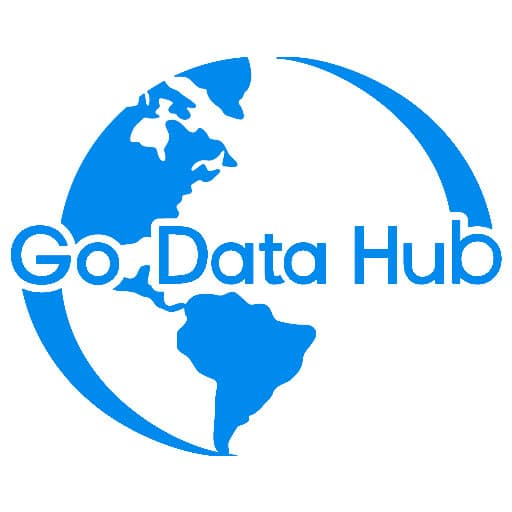Project Management For Consultants
What Is Project Management for Consultants and Why It’s Critical
Project management, when tailored for consultancy, is the art of leading project activities from conception to completion. This orchestration demands meticulous planning, execution, and client engagement to ensure desired outcomes.
Consultants grapple with unique project management challenges such as diverse client requirements, fluctuating work environments, and the need for agility. These factors necessitate a bespoke approach to managing tasks, timelines, and deliverables.
A robust project management approach underpins client satisfaction as it enhances service delivery and turnaround times. Likewise, efficiency is amplified through systematic progress tracking, which, in turn, elevates the consultant’s professional standing.
How Can Consultants Effectively Plan and Initiate a Project?
Every successful project is grounded in a thorough understanding of its scope and goals. For consultants, this becomes the bedrock of their planning process. It’s not just about recognizing the final deliverable, but dissecting the nuanced objectives that lead to tangible results. This key step positions consultants to illustrate a roadmap that aligns with the client’s vision and sets a foundation for measurable success.
Once the scope is clear, the next critical phase is to orchestrate the project’s blueprint. This entails establishing well-defined timelines that respect the ebb and flow of client availability and resource constraints. Here lies the balance of ambition and realism: consultants must chart timelines that are neither overly optimistic nor defeatist — but rather, they reflect the true pacing of the project’s progress. Alongside timing is resource allocation, which spans everything from the personnel to the particular tools required. Finally, delineating deliverables with the precision of a master craftsman ensures that each milestone is not just met, but delivers value that resonates with all stakeholders involved.
Setting unequivocal boundaries and expectations with clients might be the most underrated yet crucial strategy in a consultant’s toolkit. Strategies such as creating a structured communication plan and utilizing simple project management software for consultants like those offered by GoDataHub can greatly enhance this aspect of project management. These boundaries fortify the consultant-client relationship, preventing scope creep and fostering a climate of mutual respect and clear communication. It’s about drawing lines in the sand that safeguard the project’s objectives, empowering consultants to steer the project within those perimeters deftly.
Table of contents:
- What Is Project Management for Consultants and Why It’s Critical
- How Can Consultants Effectively Plan and Initiate a Project?
- Why You Should Prioritize Time Management, and What Are the Best Techniques?
- Proven Strategies for Effective Communication in Project Management
- Simple CRMs Are Essential
- Effectively Close Projects and Learn From Them
- Surprising Yet Effective Project Management Tactics Can Consultants Employ
- Stay Ahead With Continuous Learning And Professional Development
Why You Should Prioritize Time Management, and What Are the Best Techniques?
Time management for consultants is not just about keeping schedules; it’s a strategic component critical to project success and the cornerstone of strong client relationships. Effective time management helps ensure timely delivery and can greatly enhance the client’s perception of value received, fostering trust and long-term partnerships.
Consultants can leverage several proven methods and tools to streamline their time management. Techniques such as the Eisenhower Matrix aid in prioritizing tasks by urgency and importance, ensuring critical deadlines are met. Additionally, digital tools like calendar apps and task managers synchronize across devices, keeping consultants aligned with their timelines anywhere, anytime. Enterprises offering simple, efficient CRM solutions, like GoDataHub’s CRM, specifically cater to the dynamic needs of consultants, offering a seamless integration of contact management with project and task tracking functionalities.
To truly master time management, consultants need to tackle the pervasive issue of distractions. Designating specific time blocks for deep, focused work and utilizing tools that limit online distractions can immensely improve productivity. Surprising strategies, such as scheduled ‘distraction breaks’, can provide consultants with the breathing room to explore new ideas without sacrificing disciplined work time. Ultimately, the judicious use of these techniques ensures consultants can deliver exceptional quality work within the stipulated timelines.
Proven Strategies for Effective Communication in Project Management
At the core of successful project management lies the art of seamless communication. Whether you’re interacting with stakeholders or the project team, clarity is paramount. Each piece of information needs to be articulated precisely to avoid confusion and to harmonize team efforts towards project goals.
Communication inefficiencies can lead to project delays, budget overruns, and decreased morale. Therefore, instituting efficient communication channels and routines is essential. This means identifying the most appropriate communication tools—whether it’s email, project management software or a CRM platform like GoDataHub’s simple yet powerful solution—and establishing a consistent schedule for updates and meetings.
Transparency is another critical element, directly influencing stakeholder trust and team collaboration. Techniques such as regular progress updates, open-door policies, and the use of clear, jargon-free language can help in managing expectations effectively. Remember, surprised stakeholders lead to shaken confidence, so it’s better to over-communicate than under-communicate. Ultimately, clearly defined communication strategies can significantly enhance overall project performance.
Simple CRMs Are Essential
Project management and client relationship management (CRM) are intrinsically intertwined for consultants. In an environment characterized by multiple projects and diverse clients, a CRM is an indispensable tool for maintaining a clear overview of client interactions, project timelines, and deliverables. The seamless organization of project details facilitates timely follow-ups and ensures a consultant meets the distinct needs of each client.
Implementing GoDataHub’s simple CRM can result in considerable benefits for project management. Tailored for ease of use, it presents immediate visibility of ongoing projects and statuses. This simplicity boosts productivity by reducing time spent searching through cluttered data. By automating routine tasks, GoDataHub’s CRM streamlines workflows, allowing consultants to allocate more time to critical project aspects and decision-making.
Integration is key to modern project management strategies. A simple CRM, such as the one offered by GoDataHub, can be linked with other project management tools, creating an ecosystem that tracks project progress, budgets, and timelines. Combining a CRM with task management systems, for instance, enables automatic updates of client-related tasks. It also allows for the sharing of project milestones with the client, thus enhancing transparency and trust. Consultants can leverage CRM data to personalize client communications and proactively address potential project hurdles. Utilizing such an interconnected system positions consultants to manage projects with precision and to anticipate the needs of the client with exceptional foresight.
Effectively Close Projects and Learn From Them
Efficient project closure is not merely an afterthought; it’s a critical chapter in the project management narrative. The formal project closure and sign-off process encompasses confirming the delivery of project deliverables to satisfaction, finalizing outstanding items, discharging project resources, and obtaining formal acceptance of the project’s conclusion. Essential steps include a comprehensive checklist to assure all project aspects are addressed and scheduling a closure meeting with the client to secure formal acknowledgment and acceptance.
Gathering feedback is a two-way street that provides essential insights for continuous improvement. Effective collection methods employ structured surveys, one-on-one interviews, or feedback sessions to illicit candid responses. This ensures that consultants capture both the customer’s perspective on service quality, and the project team’s view on internal processes. Incorporating regular feedback intervals throughout the project can lead to real-time adjustments and a stronger project delivery.
Analyzing project outcomes extends beyond surface-level observation. Consultants delve into a thorough post-project analysis, identifying successes to replicate and pitfalls to avoid in future endeavors. CRUD (Create, Read, Update, and Delete) operations lie at the core of most CRM systems, including a simple and powerful option by GoDataHub, which provides an ideal framework for tracking and distilling project data efficiently. Efficient data analysis within such systems can uncover trends and facilitate a knowledge base for continually refining project methodologies. By establishing a rigid practice of documenting lessons learned and converting them into actionable insights, consultants pave the way for optimized performance in subsequent projects.

Surprising Yet Effective Project Management Tactics Can Consultants Employ
Consultants often step into diverse project environments where traditional project management dogmas might not fit the dynamic needs of the project. It’s essential to rethink and adapt methodologies. Agile practices, when tweaked appropriately, can bring much-needed flexibility to a consultant’s project management arsenal. Forget the one-size-fits-all approach; consultants should focus on creating a customized strategy that aligns with the client’s unique challenges and goals.
When it comes to innovative approaches for problem-solving and client engagement, consultants can benefit from leveraging creative thinking techniques such as design thinking, which empathizes with users, encourages ideation, and iteratively tests solutions. Think ‘outside the box’ sessions with clients, where brainstorming takes precedence, or implementing solutions in small, iterative cycles that allow for constant feedback and adaptation. Additionally, the use of virtual collaboration tools can enhance interaction, enabling consultants to maintain a pulse on the project and provide immediate value from any location.
Case studies can be incredibly enlightening, showcasing unconventional yet successful project management strategies. For example, a consultant might use gaming elements to increase team engagement and productivity, a tactic known as gamification. Others may tell stories of how shifting the project’s focus from purely technical outcomes to personal and team growth led to unexpected success. Such stories testify to the power of flexibility, innovation, and the human element in project consulting.
- Rethink rigid structures in favor of agile, adaptable methodologies geared toward consultancy.
- Deploy creative thinking and iterative processes to problem-solving and client engagement.
- Explore and learn from case studies where non-traditional approaches led to project success.
Stay Ahead With Continuous Learning And Professional Development
Project management is a rapidly evolving field, and staying at the vanguard requires ongoing education. For consultants, this commitment to continuous learning is paramount to maintain excellence. It’s not enough to rely on past experiences—staying informed on the latest methodologies is essential.
Professional development resources are manifold. Think online courses, webinars, workshops, and professional associations, such as the Project Management Institute (PMI). Websites like Coursera and LinkedIn Learning offer a slew of project management courses that cater to various skill levels and specialties. Aiming for certifications like PMP (Project Management Professional) or PRINCE2 can also significantly bolster a consultant’s credibility and expertise.
Keeping up with industry best practices and trends is another vital facet of professional growth. Consultants can leverage industry reports, subscribe to project management blogs, attend industry conferences, and engage in networking groups. In the digital age, consulting forums and social media channels are rich with insights and discussions that can inform and inspire innovative approaches to project management.
Professional development is a strategic investment in a consultant’s future, laying the groundwork for enhanced performance and recognising that project management excellence is a moving target.

